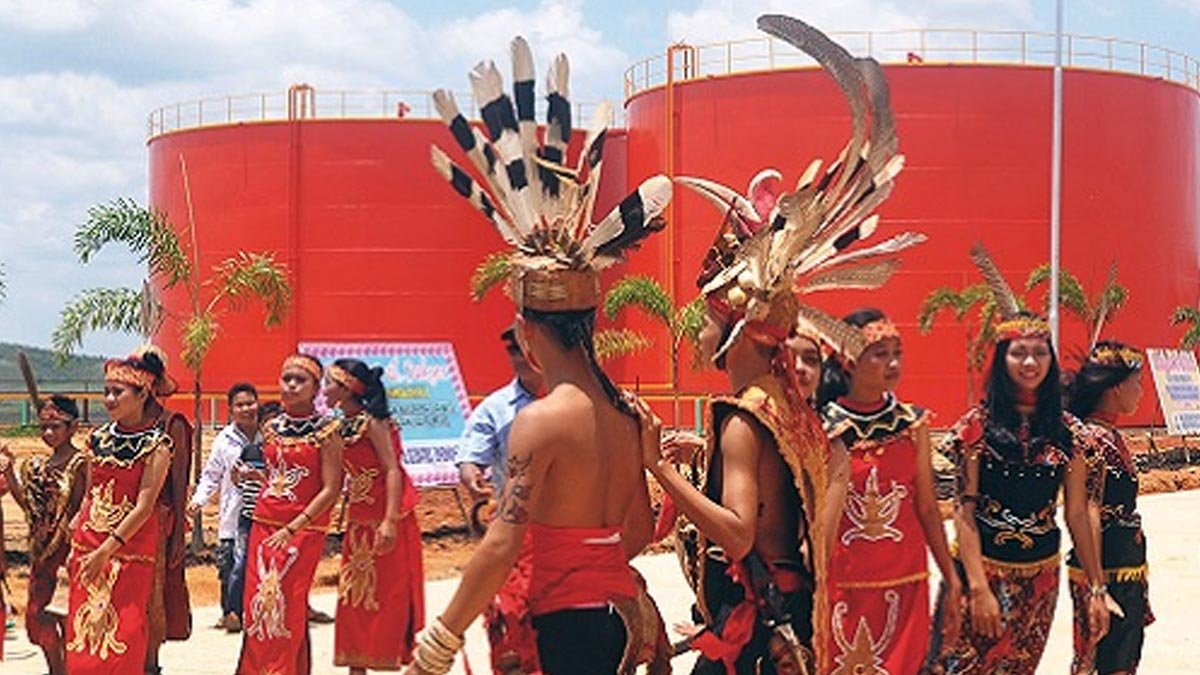PALMOILMAGAZINE, BOGOR — On the occasion of the International Day of the World’s Indigenous Peoples, the Indigenous Territory Registration Agency (BRWA) released new data revealing a wide gap between mapping and legal recognition of customary lands in Indonesia. Of the 33.64 million hectares of indigenous territories already mapped, only 18.9% have been granted formal legal status through regional regulations or decrees by local leaders.
This shortfall underscores a vast untapped potential. Beyond serving as sources of local food and strongholds of biodiversity, indigenous territories also play a strategic role in climate change mitigation — an increasingly critical factor in global risk assessments and sustainable investment.
BRWA head Kasmita Widodo emphasized that legal recognition is the cornerstone of protecting indigenous rights. “Without the passage of the Indigenous Peoples Bill, we risk losing both cultural identity and ecological assets — crucial capital as we move toward Indonesia Emas 2045,” he said in an official statement to Palmoilmagazine.com on Tuesday (August 12, 2025).
Also Read: East Kalimantan Pushes Palm Oil Waste-to-Energy to Boost Clean Energy Transition
BRWA data shows that 4.9 million hectares of indigenous land are used for traditional agriculture, forming the backbone of local food sovereignty. Practices such as shifting cultivation, mixed-crop farming, and preservation of native seeds exemplify sustainable systems that provide food security without degrading ecosystems. Indigenous women play a central role in safeguarding this knowledge and passing it to future generations.
Yet, threats from land conversion and industrial expansion remain significant. Business concessions already cover 7.3 million hectares of indigenous land — surpassing the area formally recognized by law. This imbalance highlights mounting risks of land tenure conflicts, environmental degradation, and the erosion of local food sources.
“The current recognition process is too complex. The government must accelerate discussions and the enactment of the Indigenous Peoples Bill,” urged Veni Siregar from the Coalition Secretariat for the Bill’s Advocacy.
With 23.9 million hectares of forest cover located in indigenous territories, their contribution to carbon sequestration and global climate stability is substantial. Legal recognition is not only a human rights issue but also a green economic strategy aligned with Indonesia’s net-zero goals and its FOLU Net Sink 2030 commitment.
Rukka Sombolinggi, Secretary-General of AMAN (the Indigenous Peoples Alliance of the Archipelago), warned against further delays. “As long as indigenous lands remain unrecognized and unprotected, threats to local food systems and forests will persist,” she said.
For the government, recognition of indigenous territories is more than a moral obligation or a human rights mandate — it is a strategic investment in food security, environmental sustainability, and Indonesia’s competitiveness in an increasingly sustainability-driven global market. (P2)
